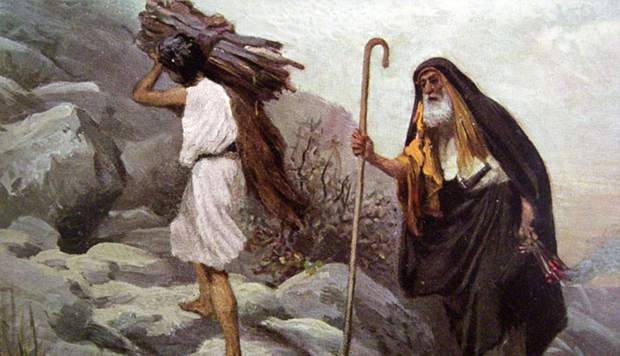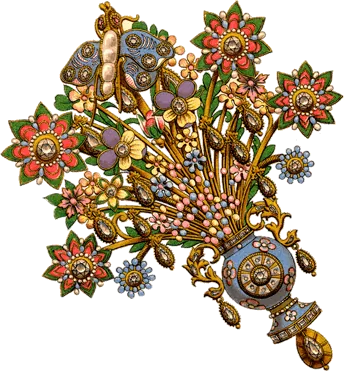The Sages depict a powerful and graphic scenario in which a willing and submissive Isaac accepts his fate: “This is as one who carries his stake for his own execution on his shoulder.”
Isaac's Submission
According to the accepted chronology, Isaac was a 37-year-old man at the time of the Akeidah. This is deduced by the fact that Sarah was 90 years old when Isaac was born, and 127 years old when she died immediately after the Akeidah. Having been in the prime of his strength, Isaac could have easily resisted or fled, but he walked on - together with his father - while bearing the wood for the offering with no animal in sight. The Sages depict a powerful and graphic scenario in which a willing and submissive Isaac accepts his fate: “This is as one who carries his stake for his own execution on his shoulder” (Bereshit Rabbah 56:3).
The Sages’ analogy is a direct reference to crucifixion, when the individual condemned by the secular court would be forced to carry the stake to the site of execution:
Then he delivered Him to them to be crucified. Then they took Yeshua and led Him away. And He, bearing His cross, went out to a place called the Place of a Skull, which is called in Hebrew, Golgotha, where they crucified Him, and two others with Him, one on either side, and Yeshua in the center (John 19:16-18).
Isaac's Merit
Bereshit Rabbah (55:4) depicts a discussion between Ishmael and Yitzchak concerning who was more righteous according to their actions:
Ishmael said to Isaac, “I am more beloved than you, for I was circumcised at the age of thirteen years, whereas you were circumcised in your infancy and could not protest.” Said Isaac to him, “All that you extended to the Holy One, blessed be He, was three drops of blood. Now, I am now thirty-seven years old and even if the Holy One, blessed be He, were to ask me to be slaughtered for His sake, I would not refrain from doing so!” In response to this, the Holy One, blessed be He, said, “Now is the time!” And thereupon God tested Abraham.
In the B’rit Chadashah, the Apostle Paul relates (Galatians 4:4-5) “...when the fullness of the time had come, God sent forth His Son, born of a woman, born under the law, to redeem those who were under the law, that we might receive the adoption as sons.” In the fullness of time, both Isaac and Yeshua endured the test of mesirut nefesh - the giving of one’s life.
What does this teach us? Yochanan 3:16 reads, “For God so loved the world that He gave His only begotten Son, that whoever believes in Him should not perish, but have everlasting life.” This act alone is the greatest sacrifice a father could endure. Additionally, the Son shared in this selfless act for all of humanity. In this way, both the Father and the Son manifested Their love to the world.


